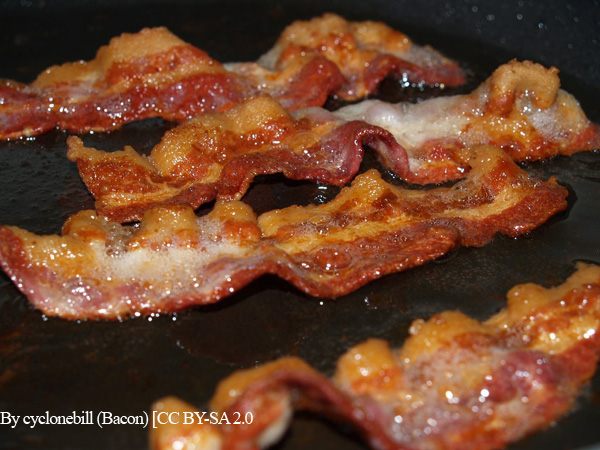Meat is known as a rich source of protein that helps to build and repair muscle tissue to strengthen and energize the body. However, it’s no secret that overindulging in processed meat, like bacon and sausages, can increase cancer risk.
Chemical preservatives used in processed meats are carcinogenic, in fact, the World Health Organization (WHO) classifies processed meat or any type of meat that has been altered through salting, curing, fermentation or smoking as a “Group 1 Carcinogenic to humans.” One of much controversy, known as nitrites, is widely used in bacon, ham, and sausage and sustains the processed meats famous reddish-pink hue as well as preserves the flavor.
Despite nitrites being linked to cancer, this preservative is widely justified by the processed meat industry for preventing harmful bacteria from growing in processed food, that is until now.
In a recent release, The Guardian made claims that nitrite additives do not protect processed meat from food-borne bacteria, according to a “confidential meat report” written by the British Meat Processor Association (BMPA).
The original intent of the report was to provide evidence that the use of nitrites in processed meat is a preeminent solution when protecting consumers from botulism– a potentially fatal disease that includes symptoms of blurred vision, trouble speaking and feeling weak.
However, to the meat industry’s surprise, the study’s findings proved the opposite. The research showed there was minor bacteria growth in both the nitrite-free and the nitrite-cured meat samples tested.
“The results show that there is no change in levels of inoculated C botulinum over the curing process, which implies that the action of nitrite during curing is not toxic to C botulinum spores at levels of 150ppm [parts per million] ingoing nitrite and below,” the study states.
Due to nitrites being a potential health concern, the chemical is closely regulated when administered on curated meats. In the US, the number of nitrites used for curating bacon is 120 p.p.m. In Europe, the maximum level for nitrites used for curing is typically 150 p.p.m, although this quantity varies depending on the type of meat and the processing technique.
The findings from the leaked study have fueled criticism from many prominent political figures and health specialist in the UK.
“This leaked internal report is highly embarrassing for the processed meat industry and for the Food Standards Agency which has persistently peddled the myth that nitrites are essential to protect against botulism,” said Baroness Walmsley, the vice-chair of parliament’s all-party group on cancer. On the contrary, this report reveals nitrites are not a controlling factor against Clostridium botulinum. This evidence raises serious questions about why nitrites are being added to our bacon and ham.”
In the meantime, the BMPA is working to examine the study further, before they make an official statement on their findings.
“The work referenced is still being reviewed and is subject to confidentiality clauses. It also needs to be further peer-reviewed. The work should be seen as a demonstration of the industry’s total commitment to providing safe affordable and quality food to the consumer and leaked extracts without context are unhelpful. After proper scrutiny by peers, this work will be presented to the Food Standards Agency to help shape future regulation,’’ the BMPA said.
Although public health concerns associated with cured meats have been a topic of controversy for many years, this new study suggests the meat processing industry still has a lot of work to do when it comes to improving their health and safety standards.












Join or login to leave a comment
JOIN LOGIN